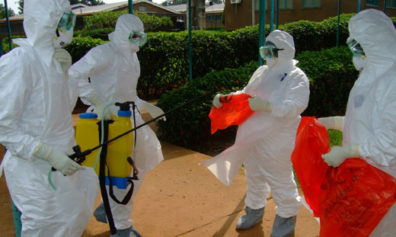
Middle East Respiratory Syndrome (MERS) is a viral respiratory illness caused by a type of coronavirus. The symptoms include coughing, fever and sometimes fatal pneumonia. There have been over 600 reported infections, including two in the United States. The two patients were health-care providers who had traveled overseas — one from Indiana and one from Florida. Over 500 cases originated from Saudi Arabia.
About a third of all cases have been fatal.
According to the New York Daily News, the WHO’s emergency committee met for five hours in Geneva on Tuesday and accessed that the MERS situation had increased in terms of public health impact, but because there is no evidence of sustained human-to-human transmission of the virus — it did not warrant a health emergency.
“It’s the (viruses) that can really sustain transmission in communities which pose the greatest danger of spreading around the world and causing large numbers of illnesses and deaths,” said assistant director-general for health security at the WHO, Dr. Keiji Fukuda, to the New York Daily News.
However, 22 international airports across the United States will now see warning materials posted about MERS from the Centers for Disease Control and Prevention (CDC).
Little is known about the disease, except that it is related to SARS (severe actuate respiratory syndrome) and is as difficult to contract. However, MERS is more aggressive than its Asian cousin SARS, which only had an 8 percent fatality rate.
The virus originated from camels, which have been used as beasts of burdens and pets for centuries by the people of that region. But most of the patients have not had contact with camel or camel products, leaving a puzzling mystery to mode of infection.
Currently the WHO has offered guidelines for constraining this outbreak: improvement and implementation of policies for infection prevention at health-care facilities; the raising of public awareness; and the distribution of more information.
S.C. Rhyne is a blogger and novelist in New York City. Follow the author on Twitter @ReporterandGirl, http://Facebook.com/TheReporterandTheGirl and visit her website at http://www.SCRhyne.com

